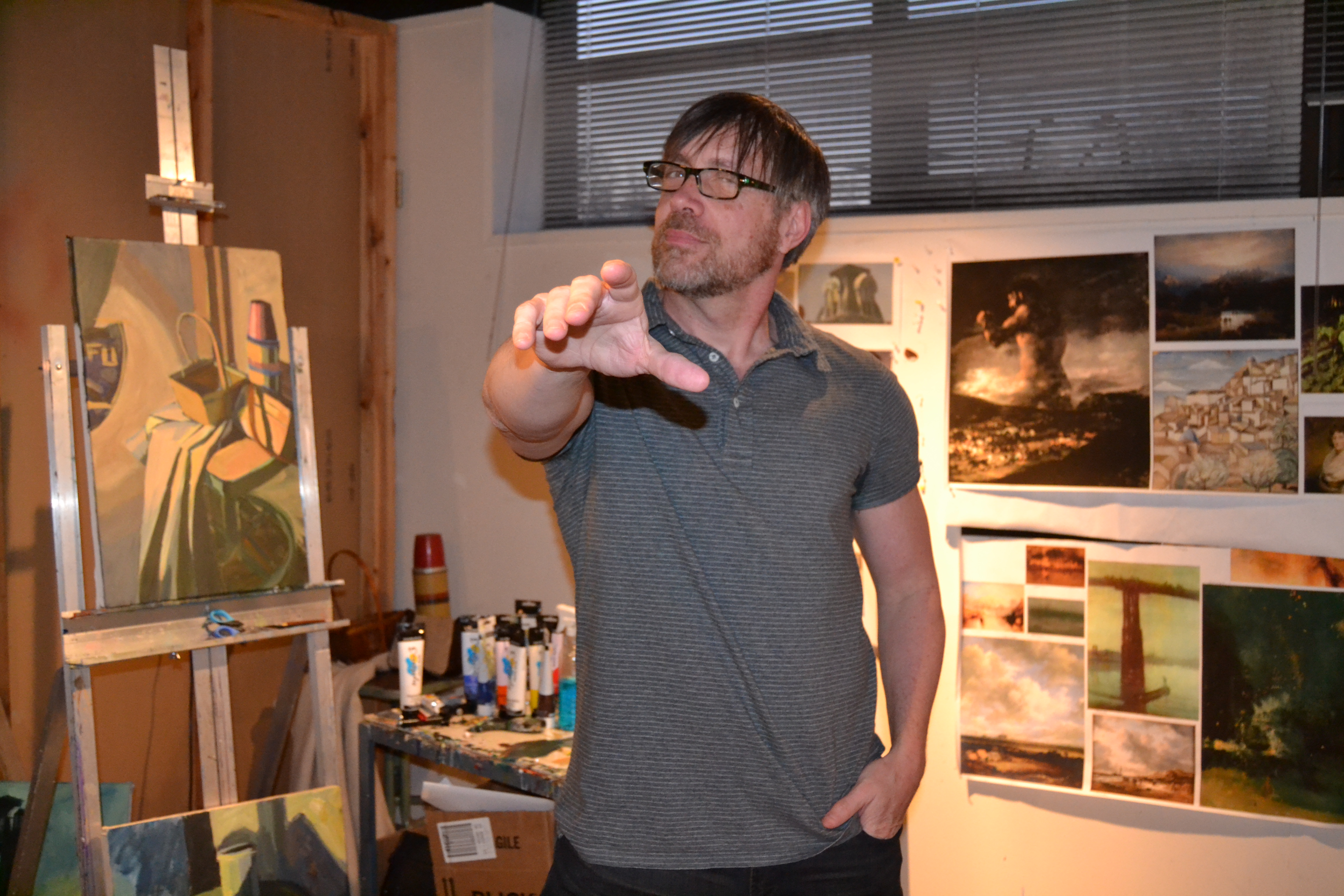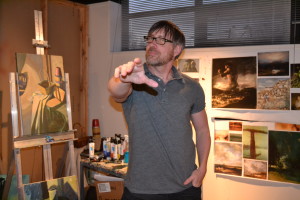

Fine art is often considered a dead-end field with no hope for a stable income.
But some projections show potential growth for jobs in the arts. Many art students may find themselves wondering what they need to do to prepare for their career — and possibly land one of the more lucrative creative positions.
Recently, The Scoop sat down with Todd Lowery, local artist and chair of Drury University’s Department of Art & Art History, who happily shared with us his five tips to success as an artist.
“If you want to play at a higher stage, you have to level up your skills,” Lowery says.
1. Build a solid foundation
Lowery, who has his master of fine arts degree from the School of Visual Arts in New York City, stresses the importance of providing yourself with a strong foundation of education and skill sets through college for both your artwork and your mind.
He suggests that if you can swing it financially, going to graduate school can only benefit you in the long run.
“Getting the type of experience that allows you to move both your work and your life in intentional directions is vital,” Lowery says. He also expressed that gaining the abilities to think critically and speak well will definitely get you further in discussing your work and the work of others eloquently.
2. Prepare yourself, and work hard
“If you are an artist and you are trying to make a life as an artist, you always have to put the work first,” Lowery says.
By prioritizing your time and working hard to home in on your skills, you will prepare yourself for success. Lowery also advises to “figure out a way to make it happen; devote the time, and make the connections to move forward.” As he put it, there are millions of artists in this world who are talented, but it is the time and effort that they put into their work that sets the successful ones apart.
3. Expose yourself to as much as possible
“Make sure that you experience, in person, as much as possible. Not just from slides, or books, or the interweb. But really be there to experience the work,” says Lowery.
He suggests visiting as many galleries and museums as possible to better understand how and why others create their work. In turn, by experiencing others’ work in person rather than from a screen or a page, you will be able to make decisions regarding your opinions of it. Lowery said that often this action will inspire you and carry into your own work, pushing your limits.
4. Travel
Lowery is a true testament of how travel and learning from other cultures can influence one’s work, as he traveled to New York City to obtain his master’s degree.
“Travel to urban centers such as New York, L.A., San Francisco. It may sound cliché, but there are so many cultural resources that you will find there that we do not have here,” he says.
Resources may include national museums, galleries, and well-known artists. He also suggests traveling to other parts of the world to further your cultural experience. “International travel really broadens your cultural horizons giving you a whole new perspective,” Lowery says. “You get a big-world view instead of a much more narrow, insulated view.”
5. Network, and never become satisfied
Lowery says that it is absolutely vital to network as an artist if you want any chance of a career in the field. You must make connections with other artists and venues to get your name out there.
Typically, artists start at local community galleries that are open to new talent and then working their way up from there. “You want to start out somewhere like Springfield’s Arts & Letters that are friendly to emerging artists,” he notes.
However, once you have reached the level of those galleries, it is important not to become satisfied and stop there. “Understand that this is where your work is right now, and there are some people appreciating it and wanting to buy it, which is great. But you’ve got to keep moving forward with your work,” Lowery says.